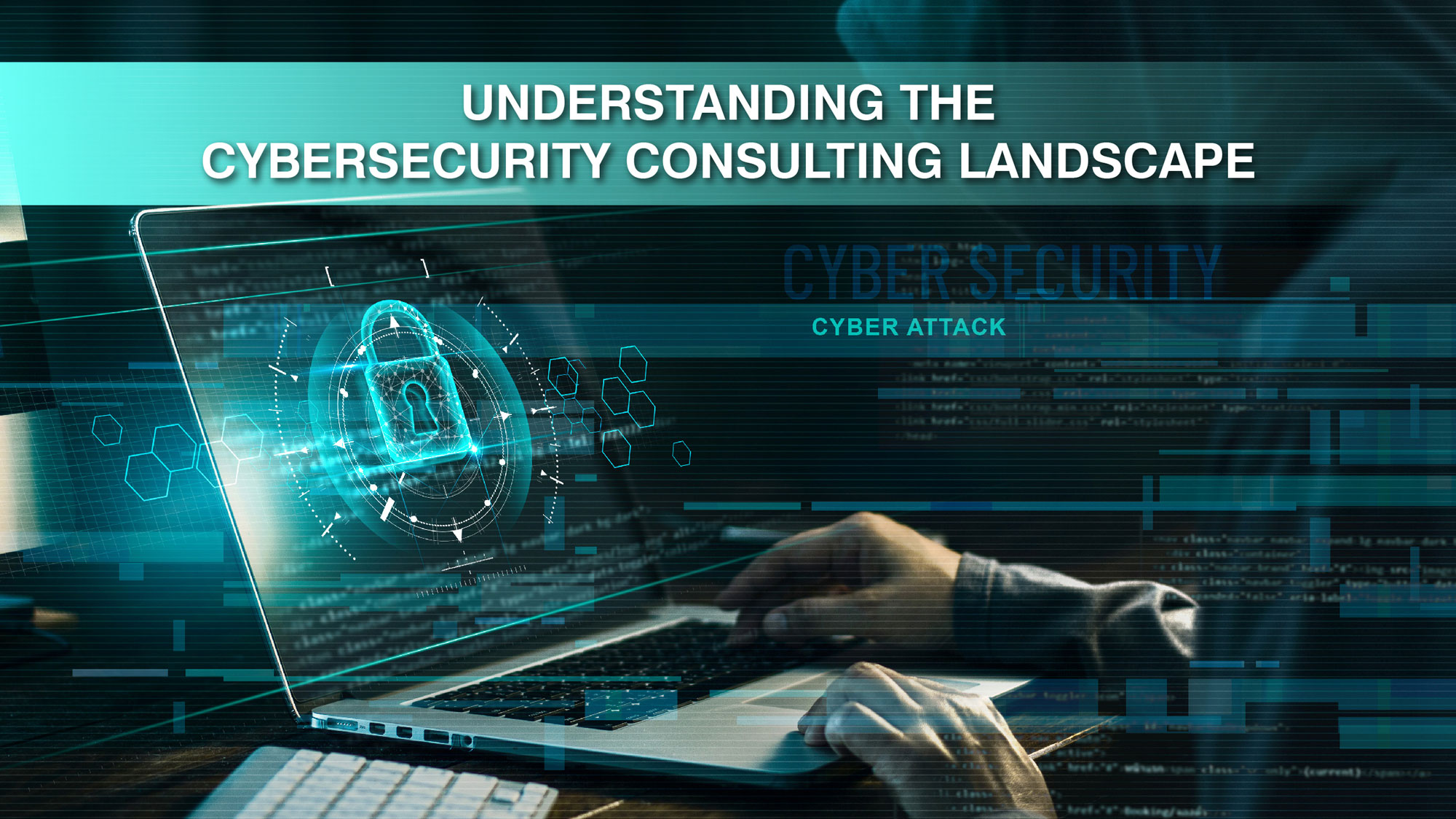The necessity for strong cybersecurity measures has never been more pressing in the current digital environment. The need for cybersecurity consulting services is increasing as organizations and people work to safeguard sensitive information from the constantly growing threats of cybercrime.
In this fascinating blog, we’ll delve into the intriguing field of cybersecurity consulting and explore the mystique of this crucial career. Join us on this fascinating voyage as we examine the difficulties, successes, and typical adventures faced by cybersecurity consultants, whether you’re a curious person looking to enter the industry or a business owner trying to secure your digital assets.
These modern-day defenders of digital fortresses combine technological know-how, strategic thinking, and a dash of cyber sleuthing to build new solutions, from combating sophisticated hackers to comprehending complex regulatory systems.
Let’s start, shall we?
What is Cybersecurity Consulting?
The practice of advising and directing businesses on how to strengthen their cybersecurity posture and defend against online attacks is known as cybersecurity consultancy. In order to identify possible risks and vulnerabilities, design security plans and policies, and put security controls and technology in place, firms frequently work with cybersecurity experts.
As businesses nowadays try to defend themselves against cyberattacks, cybersecurity experts have become essential to modern corporate operations.
In order to fight against threats to businesses’ networks and computer systems, cybersecurity consultants analyze vulnerabilities, assess security concerns, evaluate risk, and execute solutions. When assessing security systems and creating layers of protection in an IT environment that is rapidly evolving, they must consider a wide range of factors.
Cybersecurity dangers like phishing, ransomware, and hacking have grown in sophistication and scope along with technology. Total distributed denial of service (DDoS) attacks are ones that target servers and prevent users from accessing them.
Understanding the Cybersecurity Consulting Landscape

33 billion account breaches are predicted to occur by 2023. 8,00,000 cyberattacks have been documented in total, with one occurring on average every 39 seconds. If this number isnot enough to prove the point of the importance of cybersecurity consulting, have a look at the following alarming facts on cyber attacks.
Surprisingly, only 26% of small businesses place a high priority on cybersecurity, making many of them susceptible to ransomware, data breaches, and other dangerous online attacks.
Also Read: Chemical Waste Disposal: Why The Right Way To Dump Saves Us
52% of confirmed assaults against Server Message Block (SMBs) are the result of human mistakes.
These hacks can be extremely expensive, with the average claim for a small organization costing up to $139,000. Despite the dangers, 46% of SMBs have no idea how to manage cyber threats, which leaves them more open to attack.
The US bears the brunt in the rapidly developing field of cybersecurity, where data breaches come at a high cost, with an average cost of $9.44M, more than twice the global average. According to IBM, the healthcare sector is even more at risk, with an average cost of $10.10M for a data breach.
Let’s have a look at the role of cybersecurity consultants.
What is the Role of Cybersecurity Consultants?
Protecting organizations and people from the growing hazards of cybercrime requires the expertise of cybersecurity consultants. These experts are essential in spotting weaknesses, creating strong security protocols, and guaranteeing the integrity and confidentiality of digital assets.
Cybersecurity consultants are in charge of conducting thorough evaluations of a company’s current security architecture, spotting potential threats and vulnerabilities, and making suitable recommendations. They work together with stakeholders to comprehend their particular needs, create specialized plans, and put in place reliable cybersecurity solutions to safeguard critical data and lessen prospective risks.
Additionally, cybersecurity experts offer advice on adherence to industry norms and regulations, ensuring that businesses meet the prerequisites for operating safely. They are essential in helping organizations manage and resolve security breaches and data breaches, as well as incident response and recovery.
Beyond technical skills, cybersecurity experts have extensive experience. Additionally, they have excellent communication skills that enable them to educate non-technical stakeholders about best practices and deliver training to promote cybersecurity awareness within organizations.
What are the Challenges Faced by Cybersecurity Consultants?
- Adapting to a constantly changing landscape of cyber threats.
- Quickly advancing technology: Managing the security issues brought on by the speed of technology.
- Navigating industry regulations and compliance standards in a complex regulatory environment.
- Striking a balance between usability and security: ensuring security without compromising user experience.
- Overcoming a lack of staff education and comprehension regarding cybersecurity.
- Addressing the lack of qualified cybersecurity personnel and the manpower shortage.
- Network infrastructure complexity: Managing security in many interconnected systems.
- Budgetary restrictions: Making the most of available resources while maximizing cost-effectiveness.
- Insider threats: reducing hazards that originate from within the company.
- Adapting to emerging cybersecurity frameworks and tools: Constantly changing technologies and tools.
How to Start Cyber Security Consulting?

The best way to start cyber security consulting is by developing a business plan tailored to cybersecurity
A business plan offers a fundamental layout for your enterprise. It should include information on your company’s structure, strategy, goals, and budget. These helpful recommendations for what your business plan needs to contain were put together by the U.S. Small Business Administration (SBA):
- An executive statement outlining the nature of your cybersecurity company and the reasons it will succeed
- A thorough description of your business
- To determine your target market and your competitors—who can be specialized cybersecurity consultants or suppliers of broad IT services—conduct a competitive market analysis.
- A legal framework for your company
- The goods or services you intend to provide
- Your sales and marketing plan
- Your budget/funding strategy
- Financial forecasts showing when your business will turn a profit
What is The Path to Becoming a Cybersecurity Consultant?
There are various methods to develop a profession in cybersecurity. Bachelor’s degrees in subjects like computer science, cybersecurity, engineering, information security, or other relevant professions are common among employment hopefuls. Before becoming consultants, cybersecurity specialists frequently begin as junior employees of an IT team and accumulate expertise for one to three years. Some consultants choose to work for themselves, while others choose to work through consulting organizations with numerous businesses.
However, a degree is not necessarily required, and several cybersecurity consultants have developed successful careers over a lengthy period of time by combining on-the-job training with professional qualifications.
Obtain a business license, bank account, and credit card for the company.
To find out what business licenses or permits are needed to launch your cybersecurity business, contact state and municipal authorities. There isn’t a federal license requirement (yet), unlike many other professions.
Additionally, many jurisdictions demand that you have general liability insurance before issuing you a license. Additionally, if you have workers, you need to keep workers’ compensation insurance.
You might be tempted to open a corporate bank account at the same institution where you have an existing personal account. Wait a minute!
Think about regional, local, or online banks that provide fee-free bank accounts. To help you save every dime, NerdWallet provides a helpful guide for locating inexpensive business bank accounts.
A business credit card is something else you might want to think about, as it can help you separate your personal and professional finances.
Better terms and greater credit limits than personal cards are frequently offered by business credit cards. You will be given a revolving line of credit, and advantages like rewards points and cash-back deals are frequently included.
Any small firm, regardless of its organizational structure, is eligible for business credit cards. However, the cards and deals that are available to sole proprietors and the majority of new firms will depend on your personal credit score.
Conclusion
Starting a career as a cybersecurity consultant demands a strong educational background, technological know-how, and a dedication to lifelong learning. Aspiring cybersecurity consultants can traverse the dynamic market, launch their consulting firm, and offer top-notch services to clients in an increasingly digital environment by following the instructions provided in this official and educational guide. Keep in mind that the secret to success is ongoing adaptability, teamwork, and a firm commitment to preserving the integrity of digital ecosystems.






